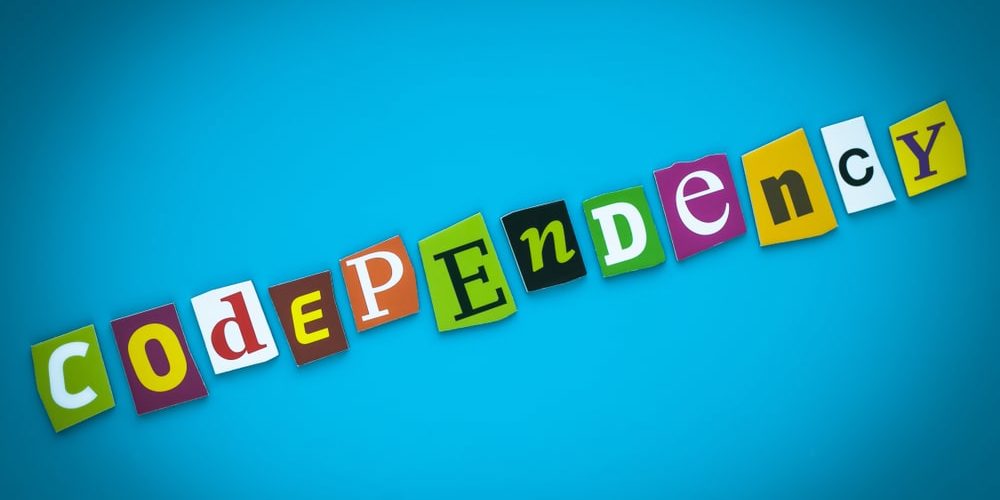Codependency is a very unhealthy behavior in a relationship – but it can be hard to understand, especially when the lines between normal dependency and unhealthy codependency become blurred.
In this article, we’ll discuss the basics about what relationship codependency is, and go over a few of the top signs that you may be in a codependent relationship. Learn more now.
Defining Codependency – What Does It Mean?
Codependency occurs when there aren’t clear boundaries related to your needs, and the needs of your partner.
One partner, often referred to as the “enabler,” may start to rely on their partner for just about everything – doing chores, running errands, helping them with personal tasks, and relying upon them emotionally.
The other partner, usually referred to as the “codependent,” will then begin using all of their energy and time to serve their partner – at the expense of their personal identity, interests, other relationships. They may even make health or financial sacrifices for their enabler.
It’s important to distinguish codependency from healthy dependency, which is common in a relationship. A “give and take” where both people in a relationship help each other is completely normal, and a good thing.
But codependency does not take this form. Instead, the enabler makes increasing demands of the codependent – and this leads to dysfunction in the relationship.
Now that we’ve discussed the basics of what codependency is, let’s discuss the top signs that you may be codependent, and that your partner may be enabling this behavior.
1. Your Sense Of Purpose Involves Making Sacrifices To Meet Your Partner’s Needs
One interesting thing about codependency is that it can often feel good for a codependent person to sacrifice their time, money, and other such things for their partner’s needs.
This can progress to such an extent that you feel like your whole purpose is to help your enabler with their needs – that they deserve your help, and that you should be expected to make such sacrifices for your partner.
2. You Find It Difficult To Say No To Your Partner’s Demands Of Your Time And Energy
This is another hallmark of codependency – finding it difficult to say “no” to a partner’s request of you, even when it may be unreasonable, or take too much of your time and energy.
Perhaps you have done the dishes every day for a week in a row – but when your partner asks that you clean up the kitchen while they do nothing, you still do it, and feel like it’s wrong for you to say no, or to request that your partner contributes to the task. Even if you are right, you may feel bad about making such a request, or saying “no” when your partner asks you to do something unreasonable.
3. You Feel Guilty About Thinking Of Yourself And Prioritizing Your Own Needs
This is related to the above point. If you feel guilty about thinking of yourself and doing things for your own personal health and well-being, you may be codependent.
For example, if you want to go to the gym or go shopping for yourself, you may feel guilty during that activity, because you are putting your own needs ahead of your partner. In a healthy relationship, you should never feel guilty about taking care of your own needs first – but in a codependent relationship, these feelings of guilt are very common.
4. You Ignore Your Own Morals Or Conscience To Do Things Your Partner Wants You To
In some cases, you may do things to satisfy your partner that go against your morals or your conscience.
Maybe they ask you to lie about them being sick so they don’t have to go to work. Maybe they ask you to help cover up a problem with drugs and alcohol, or rely on you to help them with questionably legal or immoral activities.
In a healthy relationship, these kinds of things are big warning signs that something is wrong with both your relationship, and your partner. But if you are codependent, you may be so deeply involved in trying to keep your partner happy and satisfied that you obey them and do what they want you to – even if you feel that it is wrong.
5. You Don’t Find Happiness Or Satisfaction Outside Of Your Relationship
Maybe you do take some time for yourself and your own hobbies and interests, but you find that doing the things you used to no longer feel as good, and that things you previously enjoyed doing no longer bring you the same kind of joy, happiness, or satisfaction.
Again, this is a sign of codependency. Your sense of self is so wrapped up in what your partner thinks of you that you cannot experience any feelings of happiness on your own – but only when you’re enabling your partner.
6. You Always Feel Anxiety About Whether You’re Doing Enough To Keep Your Partner Happy
Finally, one of the most common – and easy-to-recognize – signs of codependency is that you are constantly worried that you’re not doing enough to keep your partner happy, or that they may leave you or mistreat you if you don’t do what they ask.
This kind of anxiety should not be present in a healthy relationship. But in a codependent relationship, your enabler may constantly be making you anxious about the health of your relationship – it may seem like nothing you do is ever enough to keep them satisfied and happy.
Learn More About Codependency – And Get Help
It’s possible to fall into a codependent relationship – as either an enabler or a codependent – without realizing it.
If you think you are in a codependent relationship, you need to get help. If you are committed to making the relationship work, couples therapy can be a helpful way to identify the unhealthy parts of your codependent relationship – and work towards a healthier, more balanced relationship.







